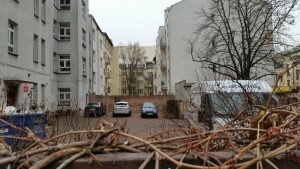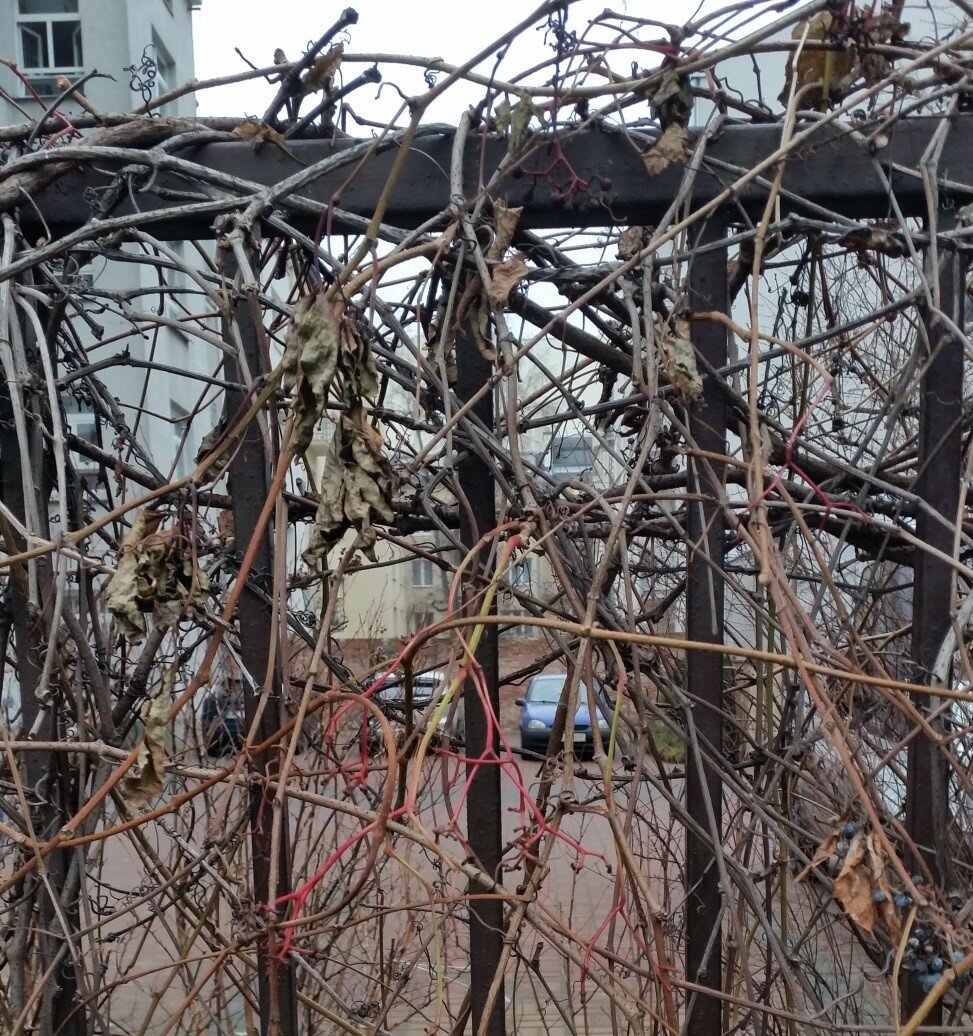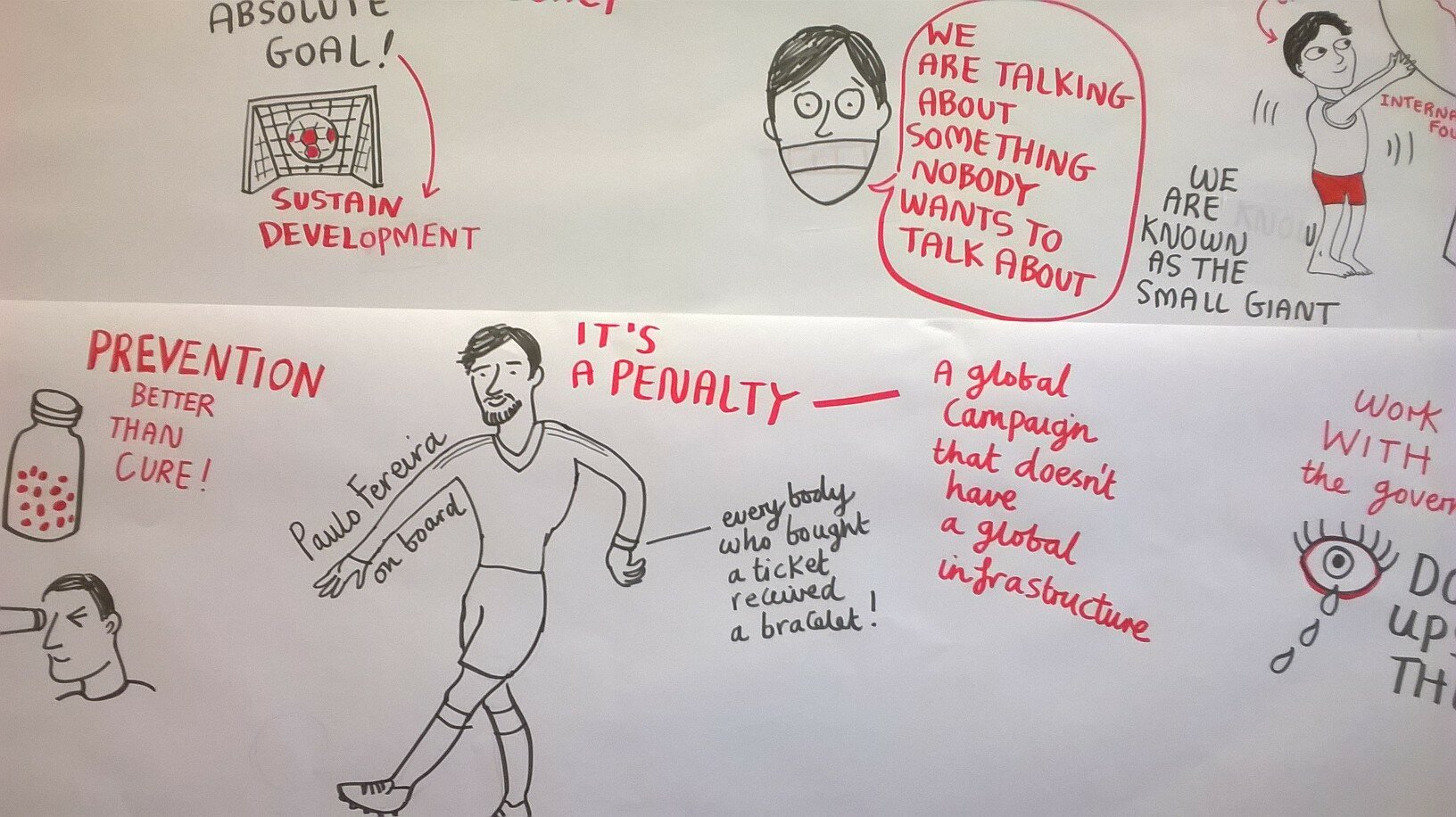I’ll start with the picture.
There are some wintry branches, behind them, a metal fence, on a cold grey flat day. The metal fence encloses two sides of a small car park and by the nature of car parks, we can just make out a few cars at the back against a brick wall. The wall, about 2m high if that, is crudely made of rough red bricks. Walls figure largely here, both literally and figuratively – on which, more later.
The wall is in where, as a guest of the British Embassy, I was part of what could in grander circumstances could be called a “Trade Delegation”. There were five of us – authors and panel members of the 2016 Walport Report ‘Distributed Ledger Technology: Beyond Blockchain’. This very well received report has now been translated into several other languages, including Japanese and French, and a Polish version is coming out soon. We were in town to share and possibly sell expertise in blockchain and all things digital, and to develop links with interested local firms and scholars; maybe also to break down a few walls (see??) and build some bridges.
Specifically, I had been asked to talk about FinTech the previous day, before the main event on Distributed Ledgers. The recent placed London at the top of the tree, followed by Singapore and New York. The analysis scored FinTech hubs on 6 qualities: a strong innovation culture: proximity to expertise; proximity to customers; the extent of foreign start-ups; the nature of regulation; and the degree of government support. London scores highly on all 6 qualities. Interestingly countries and cities lose places most rapidly in this analysis if their innovation culture is less developed and government support weakens, or regulation is unfavourable.
The FinTech scene is not well developed in Poland, but they have a thriving and visible banking culture, with lots of small banks and lots of banking start-ups. But they had no financial crash to act as a burning platform for “too big to fail” to have made an impression on their government, and from conversations they have a slightly overzealous regulatory system (perhaps the latter is linked to the lack of a financial crash?), making life for FinTech slightly less relevant and a bit more difficult.
So they have issues on regulation and government support, and there is less developed impetus to their FinTech movement. I advised them to concentrate on the “tech” (they have a strong innovation culture) and let the “fin” and maybe other applications grow on the back of that. Interestingly for the London experience, an earlier 2016 EY report prepared for the UK Treasury makes a number of recommendations to retain London’s pre-eminence. Among these is the need to create and attract a strong talent pool, and to build stronger international bridges.
A better view of the wall; there look like metal stanchions in the top, maybe for a bit of wire to add some height.

This poor little lonely neglected wall, below, was useful in marking out private spaces, and once was much, much longer. Here’s part of its route marked out on the pavement.

This part is near the big tower building, the Palace of Culture and Science, imposed on Warsaw by the Soviets. One wall in Europe knocked down; another built to replace it bit later a bit further west, in a different country, but with the same purpose of separation.
Sadly, I fear we had better get used to what these pictures represent: the future looking cold, grey, flat and bleak with iron railings and walls everywhere. For in its heyday, when it was much, much longer, and new and fresh, this quickly assembled wall was the wall built by fascists around the Warsaw ghetto, which imprisoned, and ultimately worse, some Poles based on their ideas and beliefs.
In early August 1914, Lord Grey, then UK Foreign Secretary, watched the evening lights going on in the Mall from his office in Whitehall and famously said, “The lamps are going out all over Europe, and we shall not see them lit again in our lifetime.” Well, the walls — on the ground and in people’s minds — are going up again everywhere. I doubt that I shall see them fall again in my lifetime. As biologist and author E.O Wilson said: “”. Pity we didn’t sort out the first two before implementing the third.






